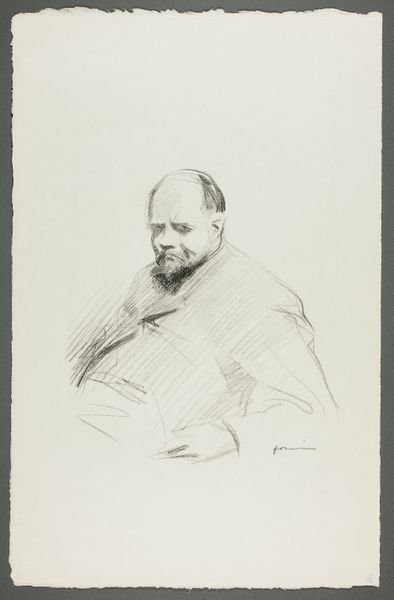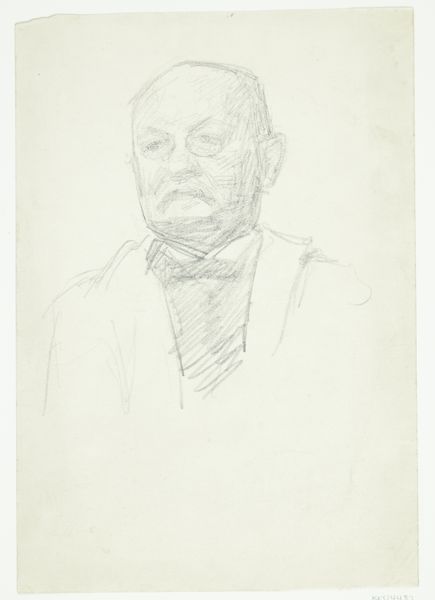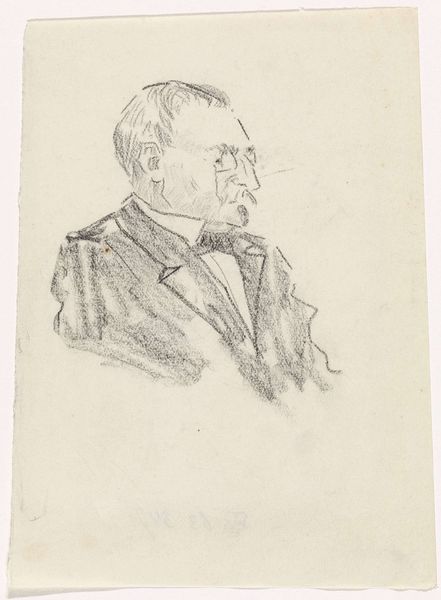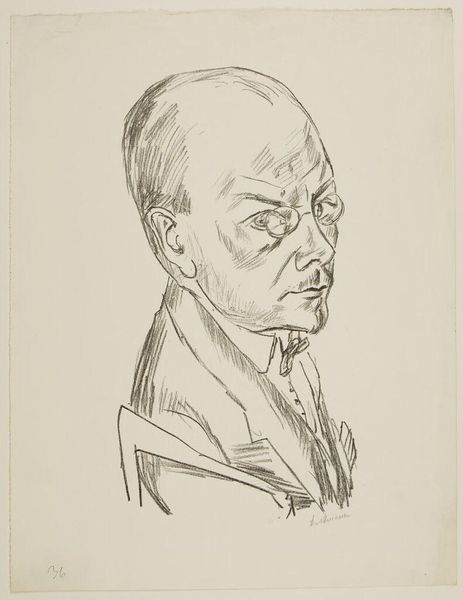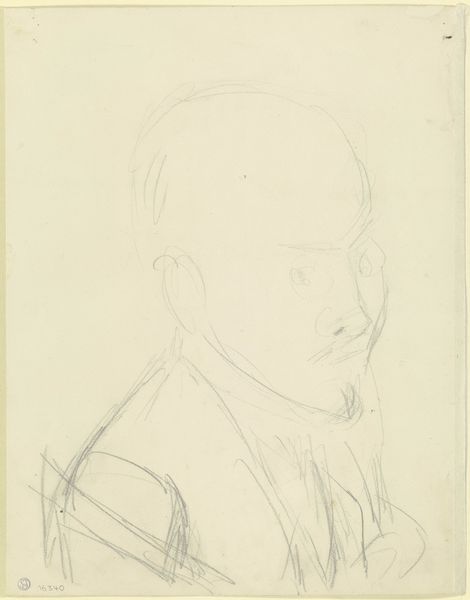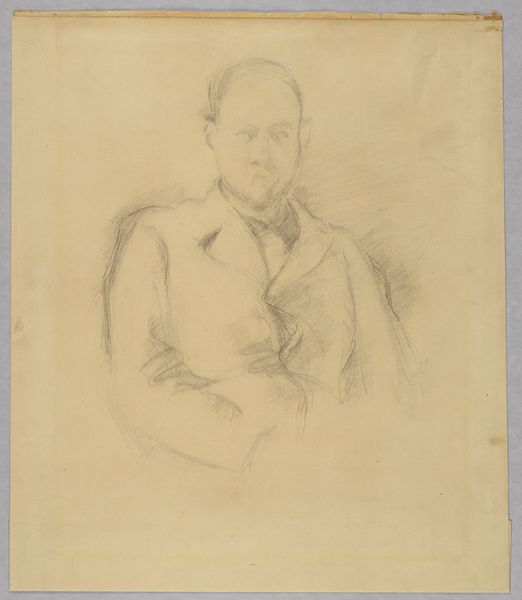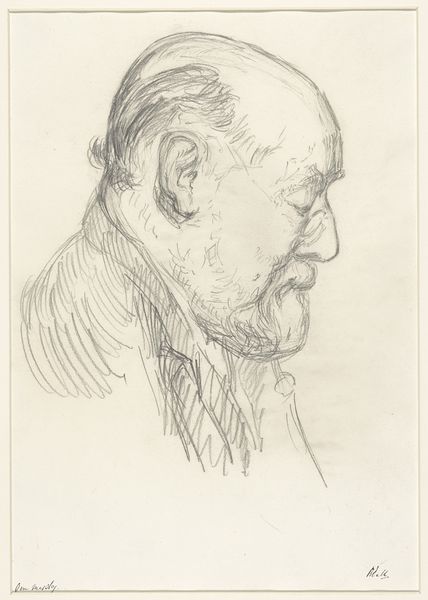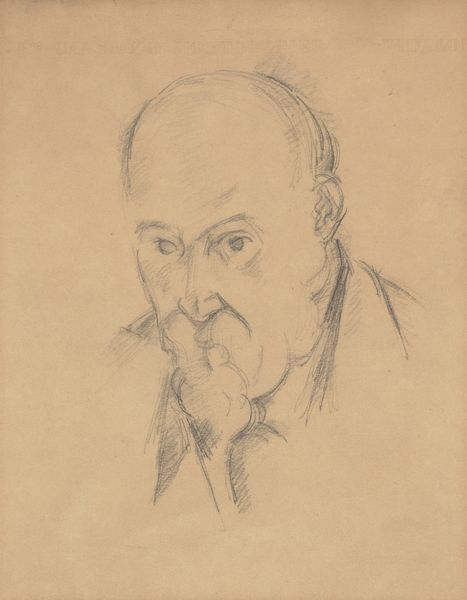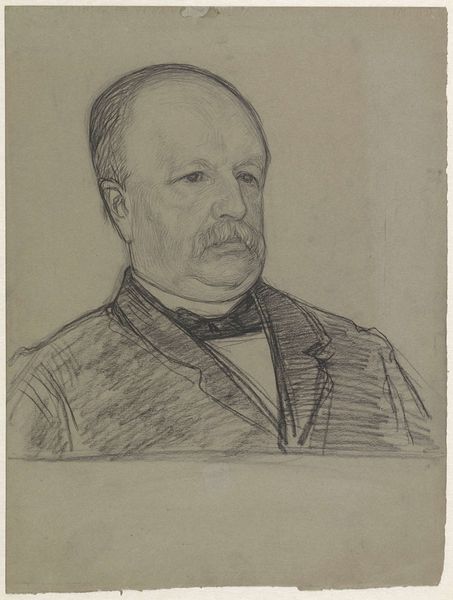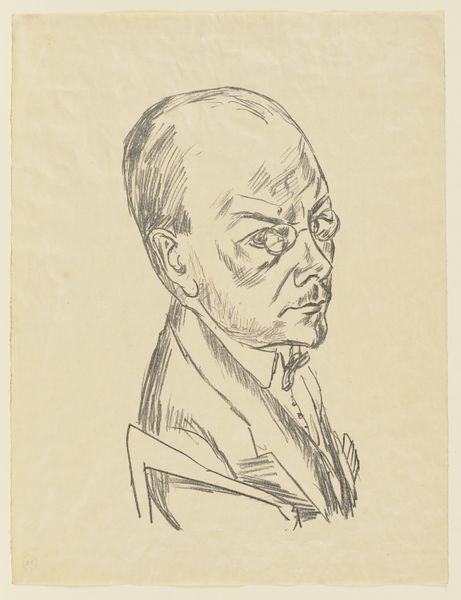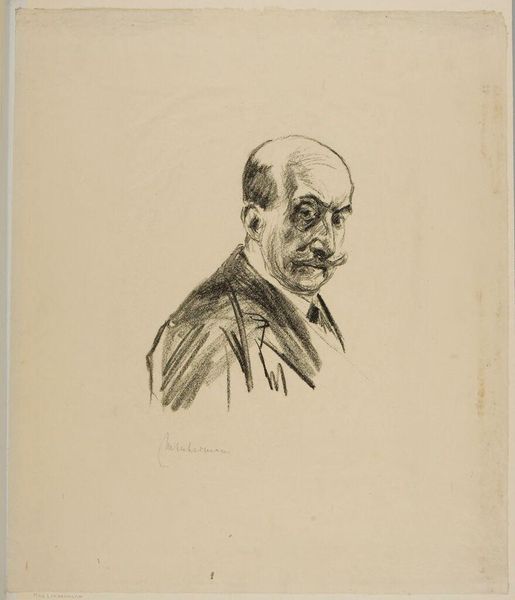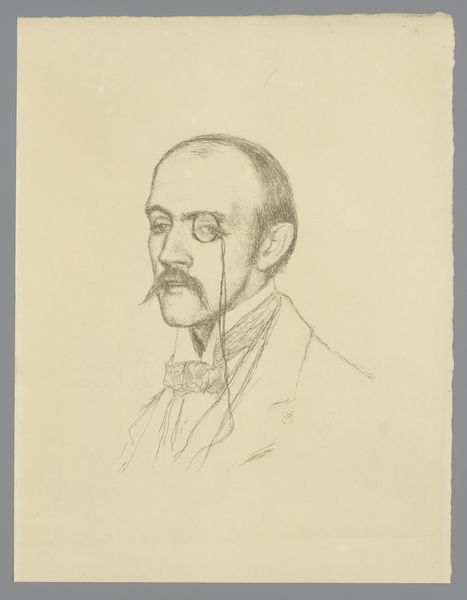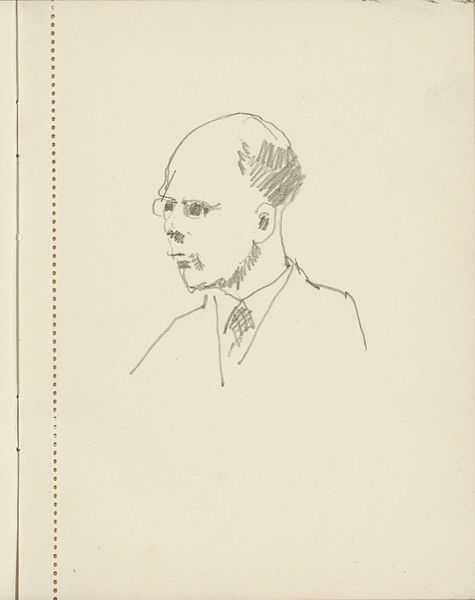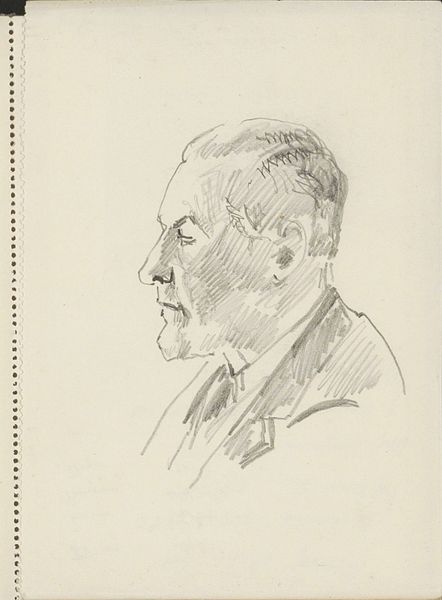
drawing, pencil
#
portrait
#
pencil drawn
#
drawing
#
light pencil work
#
pencil sketch
#
german-expressionism
#
personal sketchbook
#
pencil drawing
#
ink drawing experimentation
#
pencil
#
expressionism
#
sketchbook drawing
#
portrait drawing
#
pencil work
#
sketchbook art
Dimensions: height 236 mm, width 175 mm
Copyright: Rijks Museum: Open Domain
Editor: This is Max Slevogt’s “Portrait of an Unknown Man,” made sometime between 1878 and 1932. It’s a pencil drawing, and the quick, light strokes give it an almost fleeting, ephemeral quality. What jumps out at you when you see it? Curator: The ephemeral quality you noticed is key. Slevogt's lines remind me of half-formed memories. Look at how the eyes are shadowed, how the mouth hints at a pursed expression. The man isn't just *any* man; he carries a weight, a story the artist only partially reveals. What emotions do those features evoke for you? Editor: I think he looks…contemplative. Maybe even a bit burdened? The shadows definitely add to that feeling. It’s interesting how much emotion comes through even though it’s just a sketch. Curator: Exactly. And think about the time period, the late 19th to early 20th century. German Expressionism was emerging, exploring the psychological depths of humanity. The unfinished nature, the stark contrast – does that resonate with any anxieties of that era for you? Editor: I hadn't thought about it like that. The kind of raw emotionality I see connected to societal anxieties during that time of massive upheaval and change... Wow, I'm starting to look at it completely differently. Thanks! Curator: The beauty of art lies in these multiple interpretations. It is both a reflection of, and a reflection *on* human experience. Considering these deeper connections allows us to engage not only with art but with our shared cultural past and the psychology behind it.
Comments
No comments
Be the first to comment and join the conversation on the ultimate creative platform.
